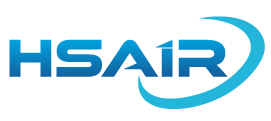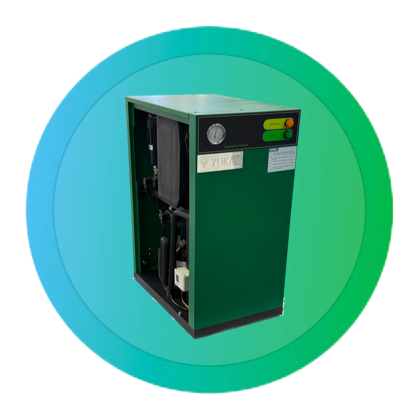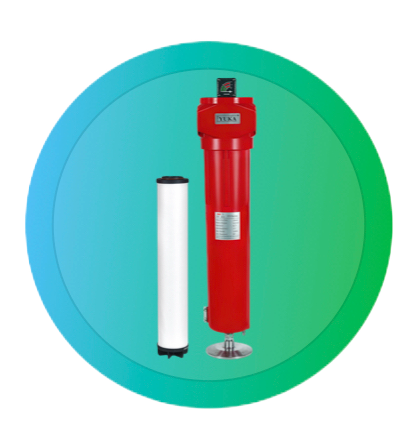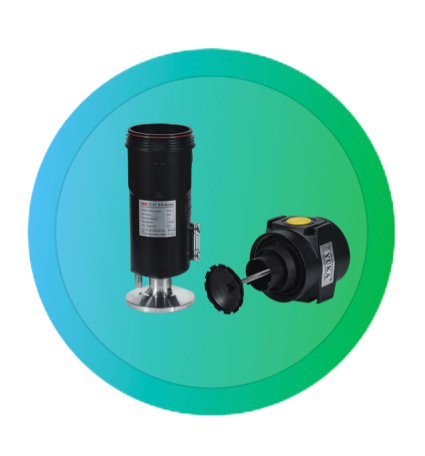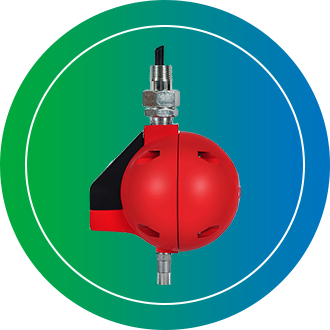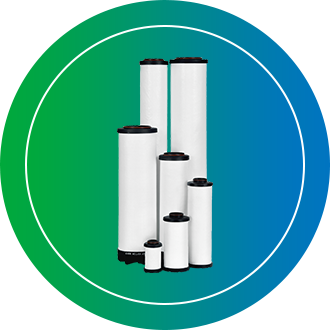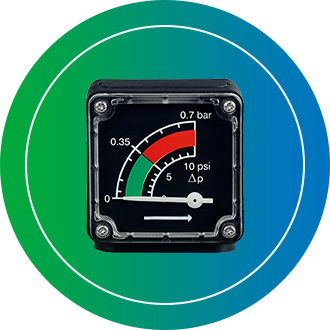Clean Compressed Air in the Pharmaceutical Industry: A Vital Component for Safety and Compliance
The pharmaceutical industry demands uncompromising precision, safety, and regulatory compliance. Among its most overlooked yet critical utilities is clean compressed air, which plays a pivotal role in processes like tablet coating, fluid bed drying, sterile packaging, and equipment operation. Contaminants such as oil aerosols, microbes, or particulates in compressed air can compromise product quality, patient safety, and even lead to costly regulatory penalties.
This article explores why GMP-compliant compressed air systems are essential, their applications in pharma, and how to select a reliable supplier—ensuring your operations meet global standards like ISO 8573-1 and FDA 21 CFR Part 11 .
To ensure safety and compliance, quality compressed air filters must be installed
Compressed air filters in the pharmaceutical industry use a multi-stage approach to achieve ultra-high purity, removing particles, oil, moisture, and microorganisms to meet stringent standards like ISO 8573-1 and GMP regulations. Key filter types include coalescing air filters for liquid and aerosol removal, activated carbon filters for gas and vapor elimination, and sterile or HEPA filters for microbial and fine particulate removal. These systems are often constructed from materials like stainless steel and are vital for sensitive processes such as product packaging, sterile filling, and equipment control.
Types of Air Filters and What They Remove
A comprehensive compressed air filtration system for pharmaceuticals typically includes several types of filters working in sequence:
✔ Coalescing Filters: These filters remove liquid droplets, particularly water and oil, from the compressed air by causing smaller droplets to combine into larger ones, which are then removed from the air stream.
✔ Activated Carbon Filters: These are used to adsorb and eliminate odors, oil vapors, and other gaseous contaminants from the air.
✔ Sterile/HEPA Filters: For the most critical applications, sterile or High-Efficiency Particulate Air (HEPA) filters are employed to remove microorganisms, viruses, bacteria, and other fine particulates, ensuring the air is free from biological contaminants.
Materials and Purity Standards
Materials: Air filter housings and components, especially for sterile filtration, are often made from high-grade stainless steel to ensure durability and to be compatible with sterilization processes.
Purity Standards: Pharmaceutical-grade compressed air must adhere to strict quality standards, with ISO 8573-1 being a common benchmark. Requirements often specify the absence of contaminants like moisture, oil, and particulates to meet Good Manufacturing Practices (GMP).
Key Applications of Clean Compressed Air in Pharma
✔ Manufacturing:
Used in tablet and capsule production for mixing, drying, pressing, and coating.
✔ Packaging:
For transporting, packing, sealing products, and inflating bags with dry air, especially for hygroscopic products.
✔ Drying and Cleaning:
To remove solvents and water from products or to clean fragile equipment like vials and tubes.
✔ Process Equipment:
To maintain an inert atmosphere in tanks, reactors, and fermentation vessels.
✔ Laboratory & Instrumentation:
Powers sensitive equipment, purifies samples, and performs various analytical functions.
✔ Product Handling:
Transporting substances through tubes or maintaining pressure blankets for solutions in tanks.
Air Quality and Contaminants
✔ Particle-Free:
The air must be free of particles like dust and pollen.
✔ Moisture Control:
Extremely dry air is often necessary, particularly when in contact with hygroscopic (moisture-attracting) pharmaceutical products.
✔ Oil-Free:
Oil can enter the compressed air system from compressors, posing a serious contamination risk.
✔ Microbial Control:
Air must be sterile or germ-free for certain applications, requiring sterile filters or catalysis.
Applications of Compressed Air in Pharmaceutical Manufacturing
These high-purity compressed air systems are used in various crucial pharmaceutical processes:
✅ Sterile Filling and Packaging: Filtered compressed air is used to dry components, clean containers, and seal packaging to prevent microbial contamination.
✅ Process Control: Compressed air operates and controls valves, sorting mechanisms, and other equipment throughout the manufacturing line, ensuring precision and preventing product contamination.
✅ Cleanroom Environments: Filters help maintain the ultra-clean air required in cleanroom environments where pharmaceutical products are manufactured.
Why Choose Heng Sheng Filtration as Your Partner in Pharmaceutical Industry ?
As a leading manufacturer of high quality compressed air and gas treatment equipment since 1998 in China.
✔ With over 27+ years of experience in research and development, production, and marketing.
✔Production facility covers a total of 20,000 square meters.
✔ Help you quickly find long-term and reliable supply resources
✔ Reduce your international procurement risks and costs
✔ Provide you with a wide variety of compressed air filtration and separation equipment to meet the varying needs of the market.
✔ Extensive experience with well-known air compressor brands.
Contact Heng Sheng Filtration Today
Get in touch with Heng Sheng Filtrations's sales experts today to learn more about Compressed Air Filters and why these components are so important to overall air compressor performance. Our friendly and knowledgeable team of air filter experts is available to assist you with selecting the optimal air filter for your compressors.
📧: sales@hsfiltration.com
